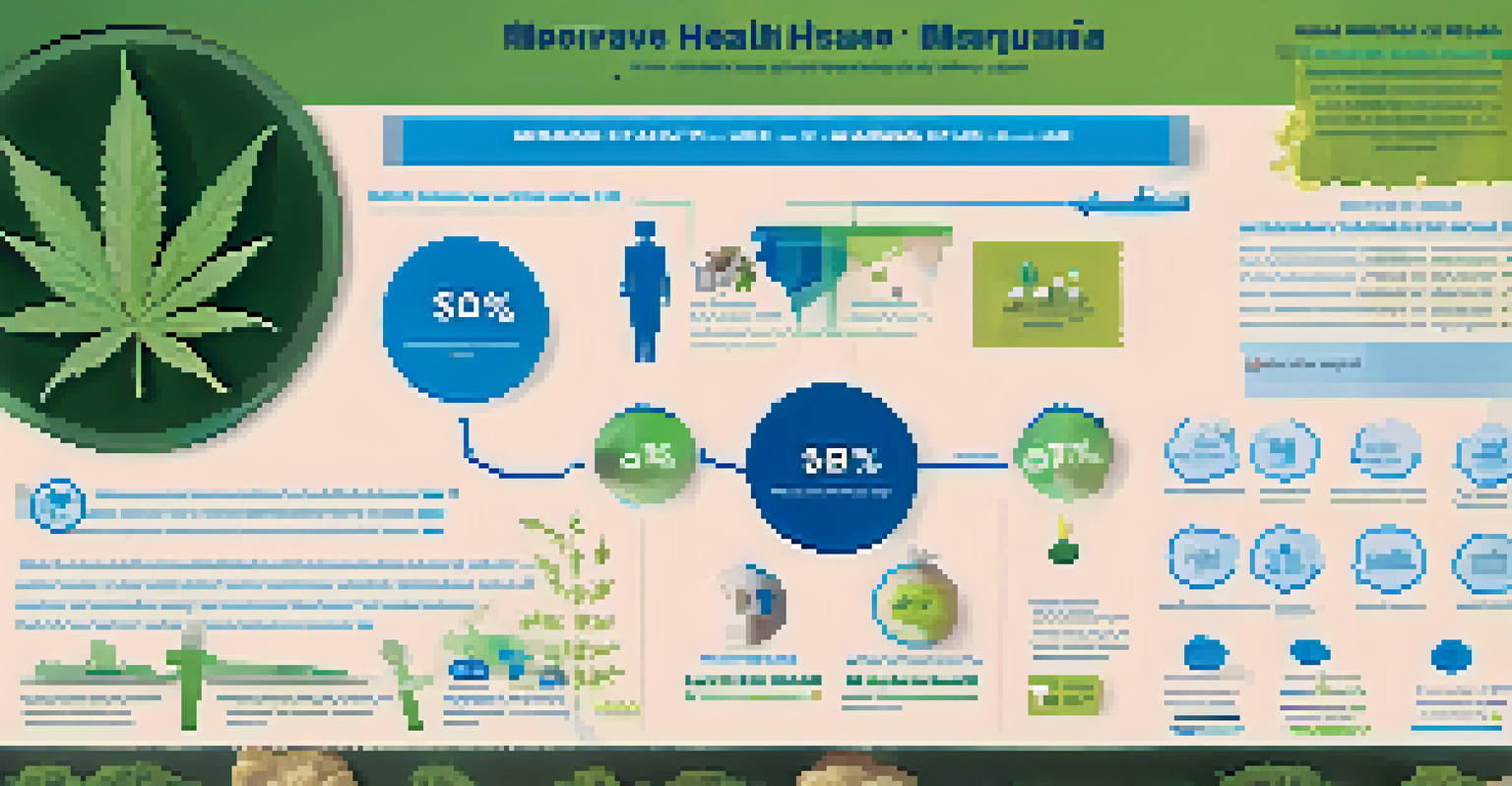The Importance of Marijuana Education in Modern School Curricula

Understanding the Changing Landscape of Marijuana Legislation
In recent years, the legalization of marijuana has gained significant traction across various states and countries. This shift in legislation means that students today are growing up in a world where marijuana is more accessible than ever. With this increased availability comes a pressing need for education that helps young people navigate the complexities of its use and implications.
Education is the most powerful weapon which you can use to change the world.
Many students may only hear about marijuana through the lens of popular culture, which often glamorizes its use without discussing the potential risks. By incorporating marijuana education into school curricula, educators can provide balanced information that empowers students to make informed decisions. This knowledge can counteract misinformation and myths that are prevalent in society.
Understanding marijuana legislation is not just about legality; it also includes discussions on health, safety, and community impact. Schools have the opportunity to create a dialogue around these topics, helping students grasp the broader social implications of marijuana use and legislation. Such education equips them with the critical thinking skills needed to engage in informed discussions as they grow into adulthood.
Promoting Healthy Choices Through Education
Education plays a vital role in shaping the choices that young people make. By integrating marijuana education into school curricula, educators can foster an environment where students can learn about the effects of marijuana on their health, both physically and mentally. This knowledge can be critical in helping students understand the potential consequences of their choices.

Discussing marijuana in the classroom also opens up opportunities for conversations about responsible use and the importance of moderation. Just like discussions around alcohol and tobacco, students can learn about the significance of making informed decisions regarding substances. This proactive approach can encourage healthier lifestyles and promote overall well-being.
Education Empowers Informed Choices
Integrating marijuana education into school curricula equips students with the knowledge to make informed decisions about its use and implications.
Additionally, when schools provide accurate information about marijuana, they can help demystify the plant and reduce stigma. When students feel comfortable discussing these issues, they are more likely to seek guidance and support if they or their peers encounter problems related to substance use. Education creates a foundation for healthy dialogue that can last well beyond the classroom.
Equipping Students with Critical Thinking Skills
Incorporating marijuana education into school curricula allows students to develop essential critical thinking skills. By exploring various perspectives on marijuana use, students can learn to analyze information, evaluate sources, and form their own opinions. These skills are not only applicable to marijuana discussions but also to many facets of life.
The only way to make sense out of change is to plunge into it, move with it, and join the dance.
For instance, students can engage in debates about the societal implications of marijuana legalization, weighing the pros and cons and considering the impact on their communities. This kind of analysis encourages them to think deeply and critically about issues, a skill that is vital in today's information-rich society. It also prepares them for future discussions on other complex topics they will encounter.
Moreover, as students learn to differentiate between facts and opinions, they become more discerning consumers of information. This ability is crucial in a world where misinformation can spread rapidly. By fostering an education that encourages critical thinking, schools not only prepare students for informed decision-making regarding marijuana but also empower them to tackle a range of societal issues.
Addressing the Myths and Misinformation About Marijuana
There are numerous myths surrounding marijuana that can mislead young people. For example, many believe that marijuana is completely harmless because it is derived from a plant. However, educational programs can debunk these myths by providing evidence-based information about the potential risks associated with marijuana use, especially among adolescents.
By addressing these misconceptions directly, schools can create a more informed student body. Students who understand the risks and realities of marijuana are less likely to engage in risky behavior. When they have access to accurate information, they can make better choices and feel empowered to discuss these issues with their peers and families.
Critical Thinking on Marijuana Issues
Teaching students to analyze various perspectives on marijuana fosters essential critical thinking skills applicable to many areas of life.
Furthermore, combating misinformation is essential for fostering a safe and supportive school environment. When students are encouraged to ask questions and seek answers, schools can help cultivate a culture of open dialogue. This culture not only benefits discussions about marijuana but also enhances communication across various subjects and issues.
Incorporating Marijuana Education into Health Classes
One effective approach to marijuana education is integrating it into existing health curricula. Health classes already cover various topics related to physical and mental wellness, making them an ideal setting for discussions about marijuana. This allows students to contextualize marijuana within the broader framework of health education.
Teaching about marijuana within health classes can also facilitate discussions on mental health, addiction, and the importance of making informed choices. By framing marijuana use within the context of overall well-being, educators can help students recognize the interconnectedness of these issues. This holistic approach encourages a more comprehensive understanding of how substances can impact health.
Moreover, incorporating marijuana education into health classes can make the subject matter more relatable and relevant to students. By discussing real-life scenarios and encouraging personal reflection, teachers can engage students in meaningful conversations. This engagement is crucial for fostering an environment where students feel comfortable exploring these topics.
Preparing Students for Future Careers in Cannabis Industries
As the cannabis industry continues to grow, there is an increasing demand for knowledgeable professionals in various fields, from agriculture to health care. By including marijuana education in school curricula, students can gain a foundational understanding of the industry and its implications. This knowledge can be a significant advantage for students considering careers in these emerging fields.
Students who are educated about marijuana will be better equipped to navigate the professional landscape as it evolves. They will understand the legal, social, and health-related aspects of the industry, making them more competitive in the job market. This preparation not only benefits individual students but also contributes to a more informed workforce overall.
Supportive Environment for Dialogue
Creating a space for open discussions about marijuana helps students feel comfortable seeking guidance and reduces the stigma associated with its use.
Additionally, as discussions around cannabis continue to develop, schools can play a pivotal role in shaping future leaders. By providing students with the knowledge they need, schools can inspire innovative thinking and ethical considerations within the cannabis industry. This foresight ensures that future professionals will be prepared to tackle the challenges and opportunities that lie ahead.
Creating a Supportive Environment for Open Discussions
Finally, incorporating marijuana education in schools promotes a supportive environment where students feel comfortable discussing challenging topics. When educators prioritize open dialogue about marijuana, they signal to students that it's okay to ask questions and seek guidance. This approach fosters trust and encourages students to engage honestly with their educators and peers.
Creating this supportive environment can also help dispel the stigma associated with marijuana use. When students feel safe discussing their thoughts and experiences, they are less likely to resort to risky behaviors out of fear or shame. Instead, they can turn to trusted adults for support and guidance.

Moreover, by encouraging open discussions, schools can better address the needs and concerns of their students. This proactive approach not only benefits individual students but also helps build a stronger, more connected school community. In the end, fostering an environment of understanding and support is essential for students' growth and development.